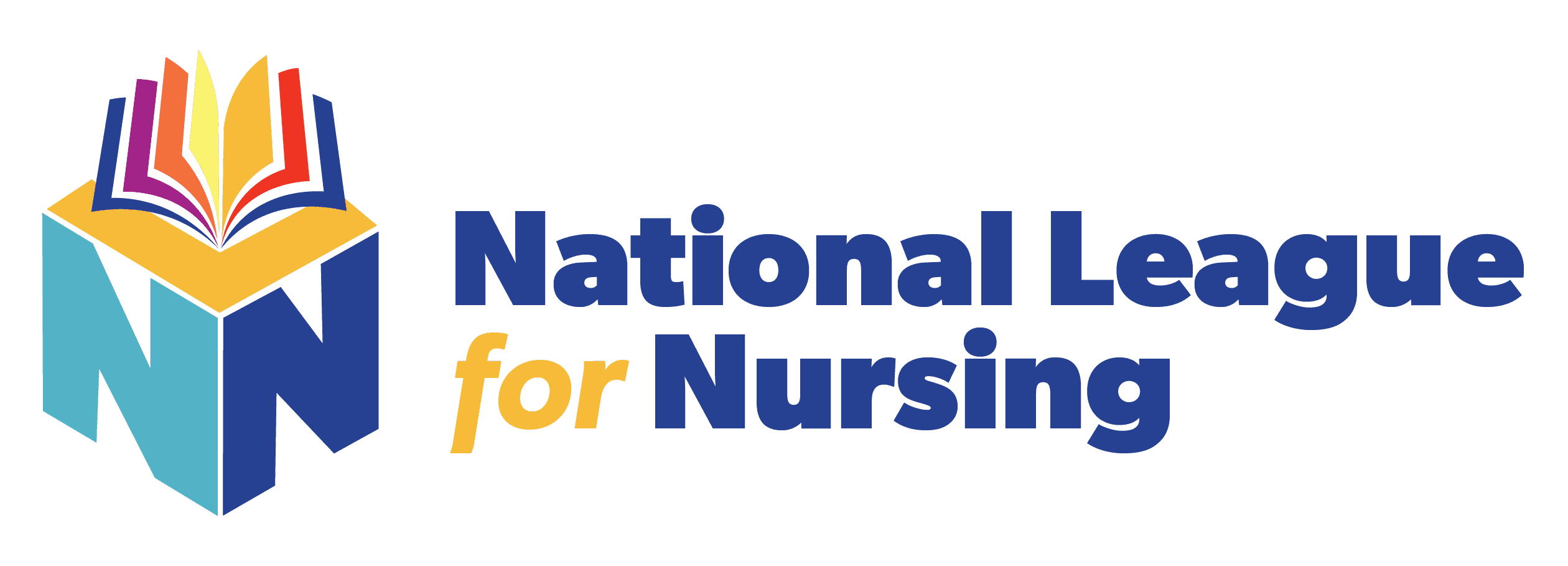Nursing Education Perspectives Publishes Special Themed Edition for 2022 NLN Education Summit: “Nursing Education During Times of Crisis”
Nursing Education Perspectives Publishes Special Themed Edition for 2022 NLN Education Summit: “Nursing Education During Times of Crisis”
Plus 4th Annual Best of NEP Award Winners Announced
Washington, DC — When a hurricane forces the evacuation of an entire campus for months on end, how do students complete their education? When catastrophic flooding destroys the infrastructure of a hospital, how does leadership
rebuild and put in place safeguards to protect against future disaster? As COVID-19 has dominated our collective consciousness for more than two years, it can perhaps be forgotten that this once-in-a-century global pandemic is but one disaster among
many that can disrupt institutions of higher learning and health care delivery.
Nursing Education Perspectives (NEP), the scholarly peer-reviewed journal of the
National League for Nursing, has devoted its special themed September-October 2022 edition to this vital topic, with a comprehensive
examination of disaster preparedness in nursing and higher education.
In their guest editorial in which they present an overview of emergency preparedness, describe what a Continuity of Operations Plan (COOP) should look like, and provide a rundown of reliable resources to utilize in preparation for a time of crisis, Drs.
Audrey Beauvais, Linda Roney, and Karen H. Frith “invite readers to consider the articles in this special edition as possible options for continuing nursing education operations when disruptions occur,” thus concluding,
“We hope this special edition provides evidence of effective approaches during a crisis, stimulates the adoption of effective teaching strategies, and inspires more innovation in nursing education…This special issue also serves to celebrate
the success of academic leaders, faculty, staff, and students during the most difficult crisis in our lifetimes.”
The publication’s lineup of features, peer-reviewed scholarship, and contributions to the Research Briefs and Innovation Center sections underscores the importance of disaster preparedness. The lead article, Nursing Faculty’s Perceptions of Climate Change and Sustainability, by Roxanne M. Amerson, Olivia Boice, Hannah Mitchell, and Joe Bible, is particularly noteworthy for its reflections on what the future may hold for nursing education and health care in an age beset by a warming planet and increasing challenges to
the social determinants of health.
Several of the issue’s articles focus directly on the realities of dealing with COVID-19 and how faculty and nursing leadership rose to address that crisis. They detail tales of resilience against long odds and resulting pedagogical adaptations
and innovations to prioritize learning in the classroom and competence at the bedside that sustained continuity of patient care. Other articles offer lessons learned during this pandemic that may be more universally applied to now anticipated disruptions
to teaching, learning, and clinical care that inevitably arise when disaster strikes.
NLN Chair Kathleen Poindexter, PhD, RN, CNE, ANEF, interim associate dean of academic affairs at Michigan State University in Lansing, said, “As Nursing Education Perspectives does year-round, this special themed edition proves a timely
and most valuable resource. I look forward to the lively dialogue these scholarly essays will no doubt inspire when we gather next month in Las Vegas and hear from the contributors themselves at the NLN Education Summit.”
The September-October 2022 issue will be posted on the journal’s website at NEPonline.net, open access and in time for presentation and dialogue to be held during the NLN Education Summit, September 28-30 in Las Vegas.
Best of NEP Lauded
Another highlight of the NLN Summit will be the 4th annual Best of NEP Awards. “While the standard for scholarship published in Nursing Education Perspectives is always of the highest order, it is nonetheless appropriate to cite
what is most exceptional,” said NLN President and CEO Beverly Malone, PhD, RN, FAAN. “Everyone is encouraged to review this outstanding and timely content for their insights and inspirational guidance.”
First-place articles have been made in three categories from 2021:
- Main Article
Educating Nursing Students About Delivering Culturally Sensitive Care to Lesbian, Gay, Bisexual, Transgender, Questioning/Queer, Intersex, Plus Patients: The Impact of an Advocacy Program on Knowledge and Attitudes
Todd Tartavoulle and Jessica Landry
Vol. 42, No. 4, p. E15
- Research Brief
Classroom Concepts in the Clinical Setting: Student Perceptions of Concept Cards
Jessica E. Gay and Christina J. Phillips
Vo1. 42, No. 3, pp. 171-173
- Innovation Center
An Innovative Model Integrating an Academic-Practice Partnership in an RN-BSN Program
Kathi S. Katz, Sandra J. Czerwinski, Leslie J. Lockett, Jacqueline C. Munro, Tiffany S. Gwartney, and Teresa Gore
Vol. 42, No. 6, pp. E100-E102
Others have been selected for Honorable Mention in each category:
- Main Article
Examining the Influence of Academic Nurse Educator Doctoral Degree Preparation on National League for Nursing Core Competency Skill Acquisition
Aaron M. Sebach
Vol. 42, No. 5, pp. 272-277
- Research Brief
Failing: Nursing Student Perceptions and Insights for Success
Amy McBeth Owen
Vo1. 42, No. 4, pp. 232-234
- Innovation Center
A Virtual Coaching Workshop for a Nurse-Led Community-Based Palliative Care Team in Liberia, West Africa, to Promote Staff Well-Being During COVID-19
William E. Rosa, Viola Karanja, Julius D. N. Kpoeh, Cory McMahon, and Janet Booth
Vo1. 42, No. 6, p. E194
About the National League for Nursing
Dedicated to excellence in nursing, the National League for Nursing is the premier organization for nurse faculty and leaders in nursing education. The NLN offers professional development, networking opportunities, testing services, nursing research grants, and public policy initiatives to its nearly 45,000 individual and 1,100 institutional members, comprising nursing education programs across the spectrum of higher education and health care organizations. Learn more at NLN.org.
